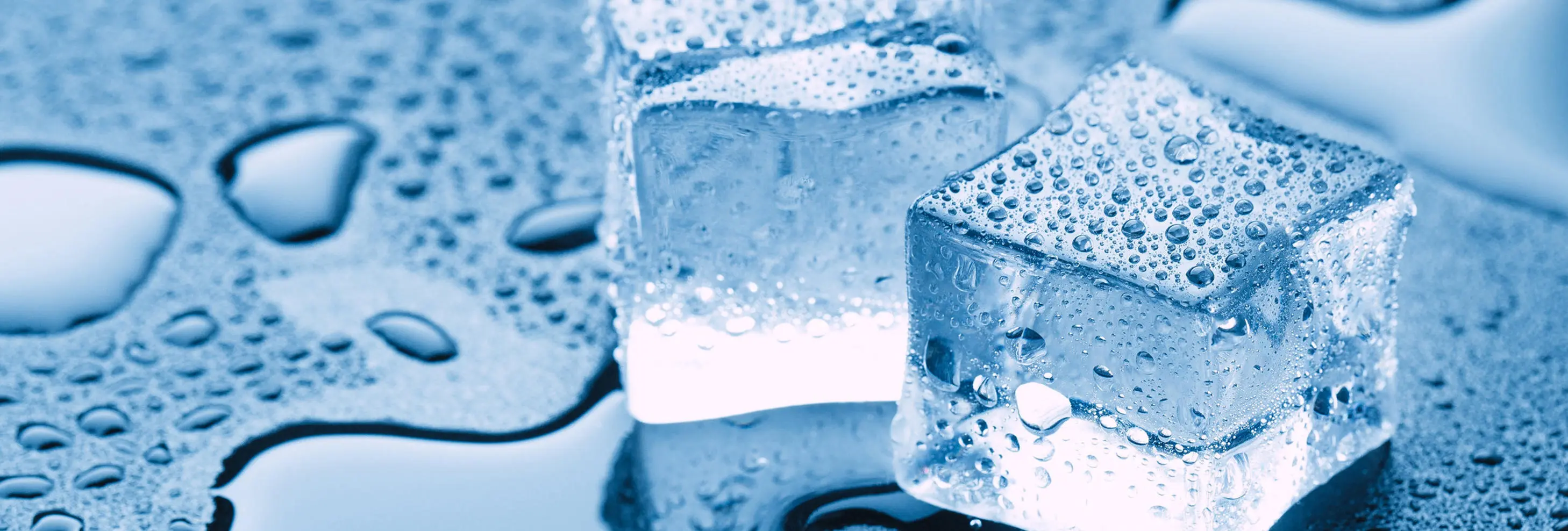UCLan led research finds inconsistencies in the application of the post-exercise cooling technique
Whilst ice baths are popular with many athletes to aid recovery, new research published in the scientific journal Sports Sciences for Health suggests that many people might not see the expected benefits because they’re not doing it correctly.
The study, led by researchers from the University of Central Lancashire (UCLan), invited athletes, coaches and support practitioners to provide anonymous feedback about their current cold-water immersion (CWI) protocols.
Out of the 111 respondents, most were involved in elite sport at international, national and club level, with many having used CWI previously and 78 percent finding it beneficial for recovery.
The study found that more than half of the respondents used a water temperature outside of the recommended range of 9 - 15°C and only 14 percent spent the recommended duration of 10 – 15 minutes in the water. Indeed, the most popular immersion time was only two and a half to five minutes long with many coaches setting a temperature of below 5°C and athletes having no set temperature target.
"The protocol used during cold-water immersion is important; with the temperature of water, duration and depth of immersion important variables to consider. "
— Dr Robert Allan, Lecturer in Human Physiology at UCLan and lead author on the research paper.
Dr Robert Allan, Lecturer in Human Physiology at UCLan and lead author on the research paper, said: “Whilst many athletes, coaches and support practitioners are aware of the many physiological benefits associated with post-exercise CWI, such as reductions in tissue temperature, alterations in blood flow and pain relief benefits, there seems a discordance between the knowledge of the benefits and understanding of the mechanisms controlling them.
“The protocol used during cold-water immersion is important; with the temperature of water, duration and depth of immersion important variables to consider.
“Ultimately short durations will be unable to illicit sufficient reductions to either core or muscle temperatures and have any subsequent impact on physiological mechanisms. In many cases, what is being used in practice will not be stimulating the benefits trying to be achieved.”
The findings also highlighted differences between how athletes and coaches regulate CWI compared to support practitioners, such as physiotherapists and sports scientists and therapists.
“This analysis offers evidence to emphasise the importance of support practitioners implementing research informed practice in an elite setting” said Dr Allan.
"This analysis offers evidence to emphasise the importance of support practitioners implementing research informed practice in an elite setting."
— Dr Robert Allan, Lecturer in Human Physiology at UCLan and lead author on the research paper.
“Most support practitioners opted for water temperatures and immersion times that were more aligned to the recommended CWI guidelines than athletes or coaches. Feedback also suggests that support practitioners also have a much better understanding of not only what changes CWI induces, but also how and why these changes occur.
“This in no way devalues the role of the coach or the athlete, only serving to highlight the benefits a support practitioner can bring to a multi-dimensional team.”
Dr James Malone, Senior Lecturer in Coaching Science at Liverpool Hope University, was also involved in the study.
He said: “This study highlights some of the potential gaps that can occur between what the science is telling us and what actually happens in practice. Obviously in the lab we are able to control things much more tightly compared to out in the applied setting, but our data suggests that coaches and athletes may not be fully educated on what best practice protocols to use for cold water immersion.
"We believe that this work will help to better educate the wider audience around the best use of cooling therapies, such as cold-water immersion, to help narrow the gap between research and practice."
— Dr James Malone, Senior Lecturer in Coaching Science at Liverpool Hope University.
“Myself and Dr Allan are part of a five-person team currently producing an expert statement on the use of cooling therapies for exercise recovery on behalf of the British Association of Sport and Exercise Sciences (BASES). We believe that this work will help to better educate the wider audience around the best use of cooling therapies, such as cold-water immersion, to help narrow the gap between research and practice.”
The study, Athlete, coach and practitioner knowledge and perceptions of post-exercise cold-water immersion for recovery: a qualitative and quantitative exploration, was published in Sports Sciences for Health and is available to download.

